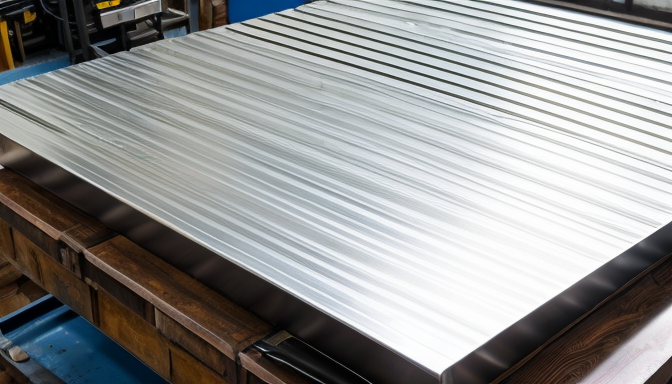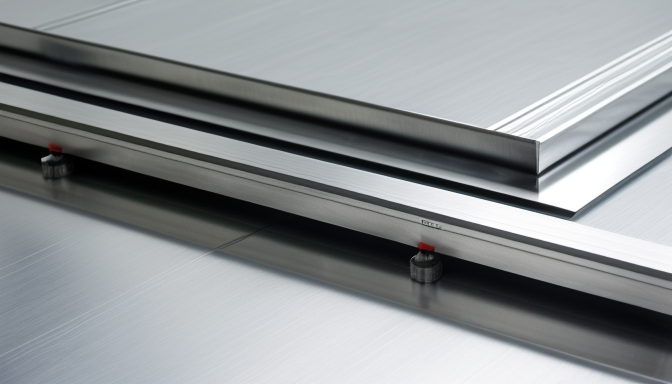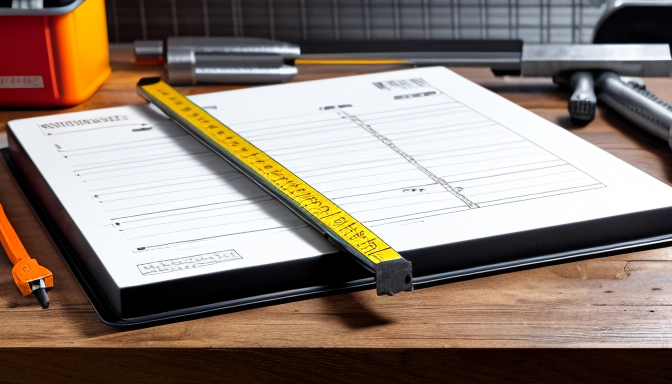A572 steel sheets are a popular choice in the construction and manufacturing industries. They are known for their strength and versatility. But what exactly makes these sheets so special? Let’s dive into the essential aspects of A572 steel sheets, including their price, weight, properties, sizes, and various applications.
When you think about steel, you might picture a strong, sturdy material. A572 steel sheets certainly fit that image. They are used in a variety of applications, from bridges to buildings, and even in manufacturing heavy machinery. Their ability to withstand stress and strain makes them a go-to material for engineers and builders alike.
But before you rush off to buy A572 steel sheets, it’s important to understand what factors influence their cost. The price can vary based on several elements, such as market demand, thickness, and size. Additionally, the location of the supplier can also play a role. Knowing these factors can help you make a more informed purchasing decision.
Now, let’s talk about weight. The weight of A572 steel sheets is an important consideration for shipping and structural design. Heavier sheets may require more robust support structures, which can impact your overall project costs. A572 steel sheets typically come in various weights, depending on their thickness and dimensions. For example, a standard sheet of A572 steel measuring 4 feet by 8 feet and 1/4 inch thick can weigh approximately 200 pounds. Understanding the weight of these sheets can help you plan your logistics better.
One of the standout features of A572 steel sheets is their mechanical properties. These sheets are known for their excellent tensile strength and yield strength, making them ideal for heavy-duty applications. The tensile strength of A572 steel can range from 58,000 to 80,000 psi, depending on the grade. This means they can handle significant stress without deforming. Additionally, their yield strength is also impressive, generally falling between 36,000 and 65,000 psi.
When it comes to sizes, A572 steel sheets are available in a variety of dimensions to meet the specific needs of different projects. Common thicknesses range from 1/8 inch to 1 inch, and they can be found in lengths and widths that suit various applications. Here’s a quick overview of some typical sizes:
| Thickness (inches) | Common Width (inches) | Common Length (inches) |
|---|---|---|
| 1/8 | 48 | 96 |
| 1/4 | 48 | 120 |
| 1/2 | 60 | 240 |
In conclusion, A572 steel sheets are a reliable choice for various industries due to their strength, weight, and versatility. Understanding their price, weight, properties, and sizes can empower you to make better decisions for your projects. Whether you’re building a bridge or a machine, A572 steel sheets can provide the durability and reliability you need.
A572 Steel Sheet Price
Understanding the pricing factors of A572 steel sheets is essential for anyone looking to make informed purchasing decisions. The price of these sheets can fluctuate based on several elements. For starters, the market demand plays a significant role. When demand is high, prices tend to rise. Conversely, during periods of low demand, prices may decrease. It’s a simple supply-and-demand scenario that can affect your budget.
Another critical factor is the thickness and size of the sheets. Thicker and larger sheets generally cost more due to the increased material and manufacturing expenses. For example, a standard 1/4-inch thick sheet will typically carry a different price tag compared to a 1/2-inch thick sheet. Additionally, the quality of the steel also contributes to the pricing. High-quality A572 steel, which is known for its strength and durability, may come at a premium.
Let’s not forget about the supplier and geographical location. Different suppliers may offer varying prices based on their operational costs and shipping logistics. For instance, if you’re located far from the supplier, shipping costs can add up, impacting the overall price. It’s always wise to shop around and compare prices from multiple sources.
Here’s a quick overview of some typical pricing factors:
- Market Demand: High demand can lead to higher prices.
- Thickness and Size: Thicker sheets generally cost more.
- Quality: Higher quality steel may come at a premium.
- Supplier Location: Shipping costs can significantly affect the final price.
To give you an idea of how prices can vary, here’s a simple table that outlines some typical price ranges for A572 steel sheets:
| Thickness (inches) | Price Range (per square foot) |
|---|---|
| 1/4 | $0.80 – $1.20 |
| 1/2 | $1.00 – $1.50 |
| 3/4 | $1.50 – $2.00 |
In conclusion, knowing the factors that influence the price of A572 steel sheets can save you money and help you choose the right materials for your project. Always consider these elements when making your purchase. It’s not just about finding the cheapest option; it’s about getting the best value for your investment.

A572 Steel Sheet Weight
The weight of A572 steel sheets is an important factor that impacts various applications. Whether you’re working on a construction project or manufacturing equipment, knowing the weight of these sheets can help you make better decisions. After all, weight affects shipping costs, handling, and even the structural integrity of your designs. But how do we determine the weight of these sheets?
A572 steel sheets come in several thicknesses and dimensions, which directly influence their weight. Generally, the weight can be calculated using a simple formula: the area of the sheet multiplied by the density of the steel. The density of A572 steel is approximately 490 pounds per cubic foot (pcf). This means that the thicker the sheet, the heavier it will be. For instance, a 4×8 foot sheet that is 1/4 inch thick weighs significantly more than a 1/8 inch thick sheet of the same size.
To give you a clearer understanding, let’s look at a quick reference table of common dimensions and their corresponding weights:
| Thickness (inches) | Dimensions (ft) | Weight (lbs) |
|---|---|---|
| 1/8 | 4 x 8 | 120 |
| 1/4 | 4 x 8 | 240 |
| 3/8 | 4 x 8 | 360 |
| 1/2 | 4 x 8 | 480 |
As you can see, the weight increases with thickness. This is crucial for shipping and handling. If you’re ordering large quantities, you’ll want to account for the total weight to avoid unexpected shipping fees. Imagine trying to lift a heavy sheet without knowing its weight. It could lead to injuries or damage to the material.
Moreover, understanding the weight helps in structural design. Engineers need to ensure that the framework can support the weight of the materials used. A heavier sheet might require more robust support structures. So, always consider the weight when planning your project.
In conclusion, knowing the weight of A572 steel sheets is not just a number; it’s a vital piece of information that can affect your entire project. Be mindful of the thickness and dimensions you choose, as they directly impact the overall weight. This knowledge will empower you to make informed decisions that enhance both safety and efficiency in your work.
A572 Steel Sheet Properties
A572 steel sheets are known for their remarkable strength and durability. These properties make them a popular choice in various industries, from construction to manufacturing. But what exactly makes A572 steel sheets stand out? Let’s dive into their key characteristics.
First off, the tensile strength of A572 steel is impressive. Typically, it ranges from 58,000 to 80,000 psi depending on the specific grade. This means that A572 steel can withstand significant stress before it deforms. Imagine trying to pull apart a thick rope; the stronger the rope, the more force it can handle without breaking. A572 steel is that strong rope in the world of metals.
Next, we have the yield strength, which is another crucial property. A572 steel sheets usually have a yield strength of around 34,000 to 50,000 psi. This is the point at which the steel starts to deform permanently. Think of it like bending a paperclip. Once you bend it too far, it won’t go back to its original shape. A572 steel offers a good balance between flexibility and strength, making it ideal for structural applications.
Another important aspect is the ductility of A572 steel. Ductility refers to how easily a material can be stretched or shaped without breaking. A572 steel sheets can be formed into various shapes without losing their integrity. This is why you’ll often see them used in beams, plates, and other structural components. It’s like a rubber band that can stretch without snapping—versatile and reliable.
Moreover, A572 steel is designed to resist corrosion. While it’s not completely rust-proof, it can withstand some environmental challenges better than other steels. This property is especially important for outdoor applications where exposure to moisture is common. Think of it as wearing a raincoat on a drizzly day; it helps to keep you dry and protected.
To sum it all up, here’s a quick overview of A572 steel sheet properties:
| Property | Value |
|---|---|
| Tensile Strength | 58,000 – 80,000 psi |
| Yield Strength | 34,000 – 50,000 psi |
| Ductility | High |
| Corrosion Resistance | Moderate |
In conclusion, A572 steel sheets are not just ordinary metal sheets. Their unique combination of strength, ductility, and resistance to corrosion makes them an excellent choice for a wide range of applications. Whether you’re building a bridge or manufacturing machinery, knowing the properties of A572 steel sheets can help you make the best choice for your project.

A572 Steel Sheet Sizes
The world of steel is vast, and when it comes to A572 steel sheets, size matters. These sheets come in various dimensions to cater to the needs of different industries. Whether you’re in construction, manufacturing, or any other field that requires durable materials, knowing the right size is crucial. Imagine trying to fit a square peg in a round hole. It just doesn’t work. So, let’s dive into the sizes available and why they are important.
A572 steel sheets are typically available in several standard sizes, which can vary based on the supplier. Common dimensions include:
| Thickness (inches) | Width (inches) | Length (inches) |
|---|---|---|
| 0.125 | 48 | 96 |
| 0.250 | 60 | 120 |
| 0.375 | 72 | 240 |
These sizes are not just random numbers; they are designed to fit specific applications. For instance, a thinner sheet might be perfect for lightweight structures, while a thicker one is ideal for heavy-duty applications. Think of it like choosing the right tool for a job. You wouldn’t use a hammer to screw in a light bulb, right?
Another point to consider is that A572 steel sheets can be customized. If the standard sizes don’t meet your project requirements, many suppliers offer the option to cut sheets to your specifications. This flexibility can save you time and money, as it reduces waste and ensures you get exactly what you need.
When selecting the size of A572 steel sheets, consider the following:
- Application: What are you using the steel for? Structural support, machinery, or something else?
- Weight: Heavier sheets may require more robust handling and support.
- Transportation: Larger sheets can be more challenging to transport.
In conclusion, understanding the sizes of A572 steel sheets is vital for making informed decisions. Whether you’re a seasoned engineer or a DIY enthusiast, having the right dimensions can make all the difference in your project’s success. So next time you’re sourcing materials, remember: size matters!
Frequently Asked Questions
- What are the typical applications of A572 steel sheets?
A572 steel sheets are widely used in construction, manufacturing, and structural applications. Their strength and durability make them ideal for bridges, buildings, and heavy equipment.
- How does the price of A572 steel sheets vary?
The price of A572 steel sheets can fluctuate based on factors such as thickness, size, and market demand. It’s essential to compare suppliers and consider bulk purchasing to get the best deal.
- What are the weight considerations for A572 steel sheets?
Understanding the weight of A572 steel sheets is crucial for shipping and structural design. The weight can vary depending on the sheet’s dimensions, so always check the specifications before making a purchase.
- What properties make A572 steel sheets unique?
A572 steel sheets are known for their high tensile and yield strength, making them suitable for demanding applications. Their excellent weldability and machinability further enhance their versatility.
- What sizes are available for A572 steel sheets?
A572 steel sheets come in various sizes and thicknesses to accommodate different industry needs. Common dimensions range from 4×8 feet to larger custom sizes, ensuring you can find the right fit for your project.
- Can A572 steel sheets be used for outdoor applications?
Yes, A572 steel sheets are suitable for outdoor applications, especially when properly coated or treated to resist corrosion. Their durability makes them a reliable choice for structures exposed to the elements.
